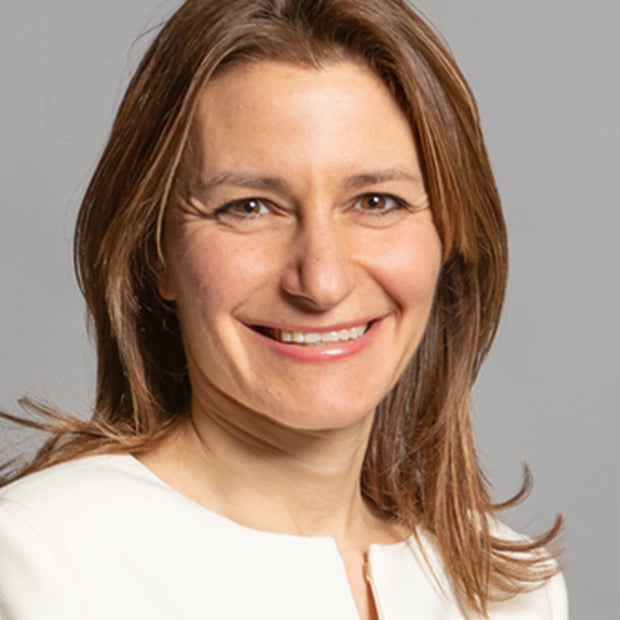UK PSBs given new privileges to compete with streamers under draft media bill
The UK government has revealed more details of its draft media bill, designed to help public service broadcasters (PSBs) better compete with streaming giants.

Lucy Frazer
The government has confirmed plans to bring Netflix, Amazon’s Prime Video and Disney+ under new rules from media regulator Ofcom and ensure PSB on-demand services such as BBC iPlayer, ITVX and All4 are easy to discover on smart TVs and streaming sticks, many of which are owned by the likes of Amazon or Apple.
Streaming services will also be required to provide subtitles, audio description and signing to support people with disabilities.
The draft media bill marks the next step in the government’s plan to modernise decades-old broadcasting legislation outlined in a white paper last year to support UK PSBs the BBC, ITV, Channel 4, Channel 5, STV and S4C.
Among the TV-focused measures are bringing mainstream VoD services consumed in the UK – such as Netflix and Disney+ – under a new Ofcom content code aimed at protecting audiences from a wider range of harmful material, such as misleading health claims.
The latest research from Ofcom indicates that traditional linear TV viewing is down more than 25% since 2011, and 68% among 16-24s.
The draft bill, available to read in full here, will introduce “simpler, more flexible rules” on what TV programmes PSBs are required to show. The government said this will mean these broadcasters – which commission around £1.2bn (US$1.5bn) worth of programming each year, almost all of it spent in the UK – will be better equipped to adapt to changing viewer habits as people increasingly watch TV on digital devices instead of linear TV.
Online programming will now count towards meeting the PSBs’ public service remit, not just their linear TV channels as things stand. Ofcom will get new powers, where appropriate and proportionate, to require PSBs to provide more of a particular type of programming if audiences are being underserved.
A key omission was the privatisation of Channel 4, plans for which were included in the white paper but then abandoned by the government at the beginning of this year following fierce opposition from practically the entire industry.
The draft bill includes more details on the proposals made earlier this year to help C4 expand its revenues beyond purely advertising, including allowing it to produce shows in-house and retain rights for international distribution.
Channel 4 will no longer be barred from producing its own content if it chooses to do so and will get a new legal duty to consider its long-term sustainability alongside the delivery of its public service remit. The government said this will “ensure this globally renowned broadcaster can continue to produce high-impact, distinctive shows long into the future.”
The government has committed to raising the level of Channel 4’s independent production quota, which will be done via secondary legislation, and said it continues to work with the industry to consider additional protections that will safeguard the pubcaster’s important role in supporting the production sector following these changes.
Culture secretary Lucy Frazer said: “Technology has revolutionised the way people enjoy TV and radio. The battle to attract and retain audiences has never been more fierce. British content and production is world-leading but changes to viewing habits have put traditional broadcasters under unprecedented pressure.
“These new laws will level the playing field with global streaming giants, ensuring they meet the same high standards we expect from public service broadcasters and that services like iPlayer, All4 and ITVX are easy to find however you watch TV.
“Our bill will give these brilliant broadcasters and our legendary radio industry the tools to keep doing what they do best – nurturing the creative talent and skills that fuel the UK’s booming production industry, whilst making outstanding shows that we can all enjoy.”
Dame Carolyn McCall, chief executive at ITV, said: “We welcome the publication of the media bill as a decisive staging post on the journey to a modern and flexible regulatory regime for TV and media in the UK. This bill will modernise the framework for a PSB system that is the cornerstone of the £116bn creative economy.
“The UK is a global leader in the creative industries and this legislation will help to maintain and strengthen that position. Given the profound and dynamic changes in the global media ecology the need is urgent and we would encourage the government to ensure the bill becomes law as soon as possible.”
Maria Kyriacou, Channel 5 owner Paramount Global’s president for broadcast and studios, international markets, said: “We welcome the publication of the draft media bill. This is vitally important new legislation to ensure that prominence for PSBs is maintained in the age of the smart TV.
“We hope that parliament supports and recognises the urgency of implementing this to underpin the health and vitality of our world-leading British broadcasting and creative sector – and protect it for the future. It’s particularly pleasing that Channel 5’s PSB licence has also been renewed, which is great recognition of the ongoing success of the channel and its important role in the public service ecology of the UK.”













.jpg)




























